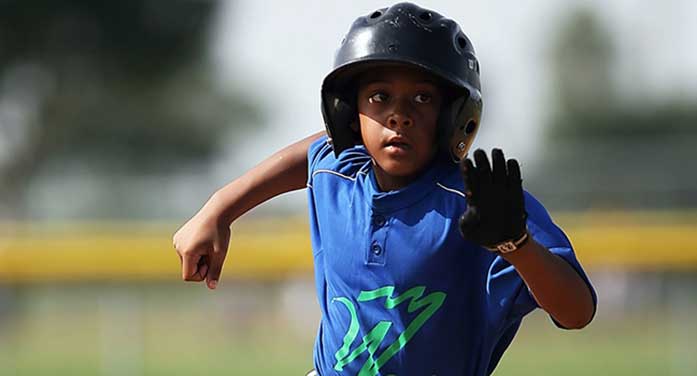 Educational, physical, emotional and spiritual developmental goals for youth and high school sports programs are increasingly being brushed aside by win-at-all-costs and profit-at-all-costs ethos.
Educational, physical, emotional and spiritual developmental goals for youth and high school sports programs are increasingly being brushed aside by win-at-all-costs and profit-at-all-costs ethos.
The professionalization of youth sports organizations, our ‘little leagues,’ is appalling. Adults – parents and coaches – treat youth sports like the big-time pro and college versions. Kids quickly learn from adults in their lives that winning is the priority, whether that ethic is verbalized or not.
Sadly, the professionalization of youth sports has resulted in virtually total control by adults today. Spontaneous play – where kids form teams, make up the rules and design their own plays, etc. – has been replaced by adult-controlled youth sports, in which ‘grownups’ create the leagues, teams, make the rules, design and call the plays, etc. – often for their entertainment and ego gratification and, even worse, sometimes simply to realize a profit.
It’s not uncommon for youth football teams, made up of 10-and-11-year-olds, to have six coaches, including offensive and defensive co-ordinators. Young people become nothing more than performers in a youth sports entertainment spectacle under the authoritarian oversight of the head coach.
Veteran American sports journalist Robert Lipsyte describes the all-too-common youth sports environment this way: “A million Little Leaguers stand for hours while a criminally obese ‘coach’ drills the joy of sport out of their souls, makes them self-conscious and fearful, teaches them technique over movement, emphasizes dedication, sacrifice, and obedience instead of accomplishment and fun.”
 |
| RELATED CONTENT |
| Making a strong case for more phys-ed in Canadian schools By Ken Reed |
| How to help kids cope with back-to-school stress By Bev Betkowski |
| Eight proven ways walking improves your brain By Faith Wood |
Specialization is another trend in the movement to professionalize our young athletes. Athletes specialize in a single sport at younger and younger ages. Many 10-to-12-year-old hockey, soccer, volleyball, basketball, baseball and softball players are pressured by parents and coaches to play competitively in one sport, year-round, in an effort to maximize the young athlete’s development.
This occurs despite quantitative and qualitative research showing that early specialization in one sport is rarely beneficial and often detrimental to an athlete’s overall development.
Research also reveals that kids who specialize in one sport at an early age burn out sooner and suffer more from overuse injuries. Nevertheless, parents are increasingly shipping their kids to specialized trainers for regimens similar to what major college and pro athletes go through.
As the perceived rewards become greater (athletic scholarships, professional sports contracts, Olympic team berths, etc.), parents put more and more time and money into youth sports. Many families, most often middle- and upper-middle-class suburbanites, are spending more than $10,000 on club teams, personal training, travel leagues, etc., by the time their child is a senior in high school. It all occurs in the hopes of landing a major college athletic scholarship – an occurrence that’s much more rare than most parents and their children realize.
A disturbing trend at the American high school level is the increasing infiltration of corporations on campuses. These high schools, in search of revenue to support dwindling sports budgets – or simply to keep up with competing schools – have turned to corporate sponsors to fill the bill. Stadiums, gyms, locker rooms and other facilities are plastered with corporate brands, often junk food companies eager to exploit an easily susceptible target audience. All of this occurs while we’re in the middle of a childhood obesity epidemic.
Where has this win-at-all-costs and profit-at-all-costs model of youth sports led us?
Studies show that 80 per cent of American children drop out of sports completely between the ages of 12 and 16.
The bottom line is we’re using a youth sports model that fails to build a lifetime love of sports participation and physical fitness.
Ken Reed is sports policy director for League of Fans (leagueoffans.org), a sports reform project. He is the author of The Sports Reformers, Ego vs. Soul in Sports, and How We Can Save Sports.
For interview requests, click here.
The opinions expressed by our columnists and contributors are theirs alone and do not inherently or expressly reflect the views of our publication.
© Troy Media
Troy Media is an editorial content provider to media outlets and its own hosted community news outlets across Canada.
